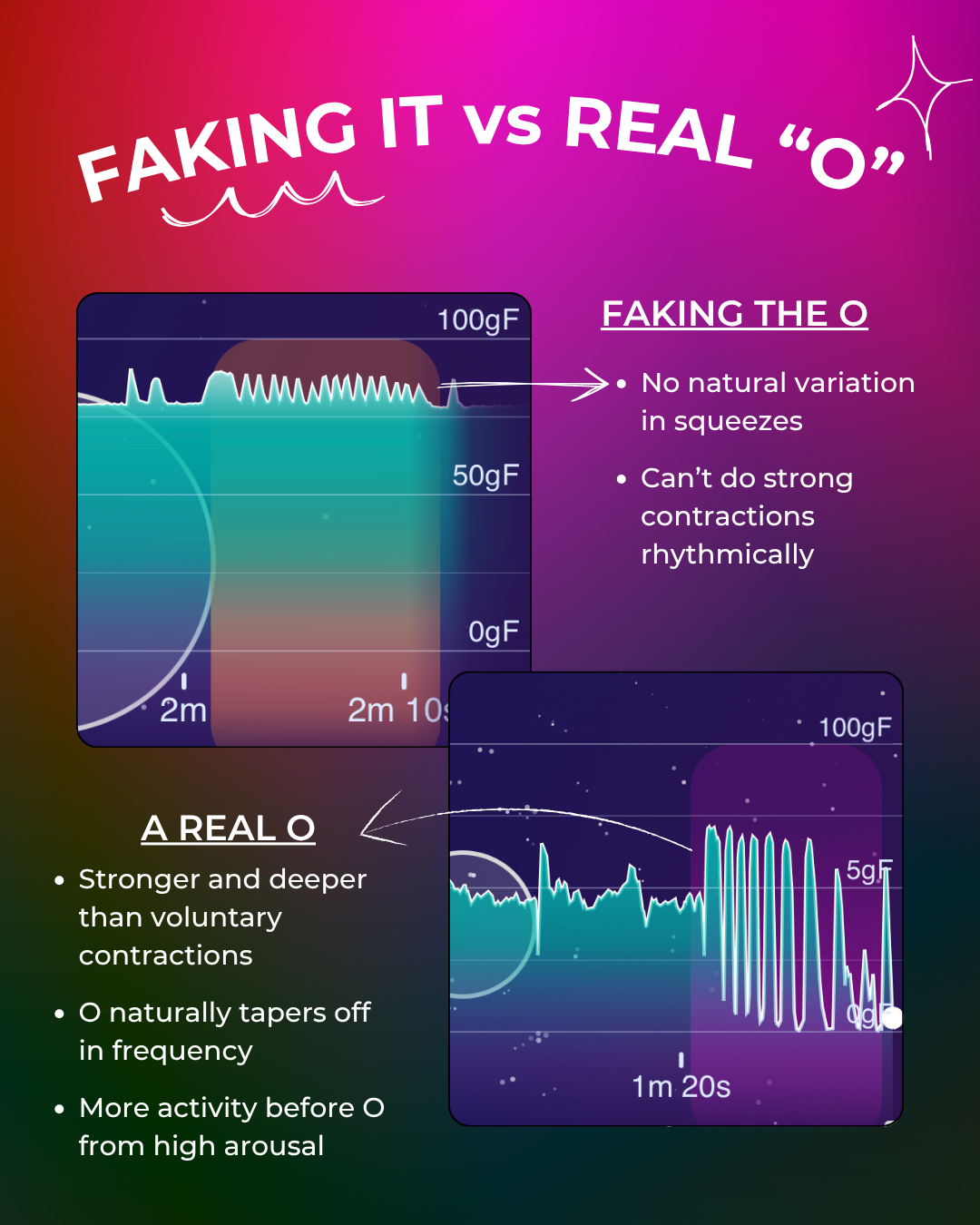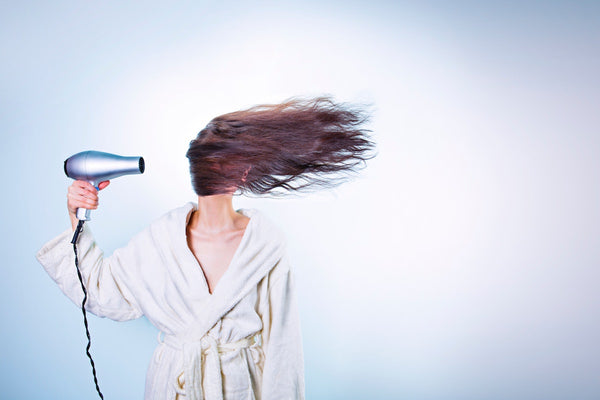
By James Wang and Liz Klinger, Co-founders of Lioness
Between porn, movies, internet stories of crazy sexcapades, and Fifty Shades of Grey, it's easy to feel like something's wrong with you when your orgasms don't look like what's advertised, or you can't orgasm at all.
"I just feel alone. When people make it seem so easy, you can't say the same. You feel like the only person who hasn't [had an orgasm]" - focus group participant, 2013 study [9]
This is a hard topic to cover—not only because it's emotional and deeply affects a lot of people, but also because it's muddled. There's a lot of different causes of "not orgasming" but, because of our stifled conversations about sexuality, it's all lumped together.
It's hard to get a grip on the problem with such ambiguity, and a fraught medical and scientific landscape. But this is one of the most common questions we get, so it's worth trying to at least start addressing the topic here.
As always with these particularly difficult topics, this is going to be a long article—so strap in.
No orgasms or too few orgasms
In this article, we'll mainly be focused on anorgasmia (primary and secondary—meaning either total lack of orgasms or fewer than desired) in women, given that it's the population that most commonly encounters this.
We'll talk about how common this is, what potential causes there are, and what one may be able to do about it.
There's a lot more that can be said about what real orgasms look like vs. what we see in popular media, but that's more than we can cover in one article.
So how normal is this?
In the National Health and Social Life Survey (NHSLS), a large representative sample of women in the US, one-quarter of women reported not being able to achieve orgasm. [10] Needless to say, that's a lot (and a LOT more than men, whose issues with orgasm in every demographic were in single digits).
 Classic when "Harry Met Sally" so-did-those-real-orgasms-look-like-this-? scene
Classic when "Harry Met Sally" so-did-those-real-orgasms-look-like-this-? scene
A broader—perhaps too broad—definition of "Female Sexual Dysfunction" (FSD) encompassing more classes sexual dissatisfaction is usually estimated around 50% of all women. [2] Again, that's a lot.
In short, this happens fairly often. So, if you currently can't orgasm or have trouble orgasming, you're definitely not alone.
Causes: why can't I orgasm?
One big issue in talking about not being able to orgasm is the causes of why an individual can't orgasm are pretty varied. There aren't great representative surveys, at least as far as we know, that break down the prevalence of causes.
In general, what you get is a shotgun spread of potential physiological and psychological causes. The below diagram is fairly illustrative of this point.
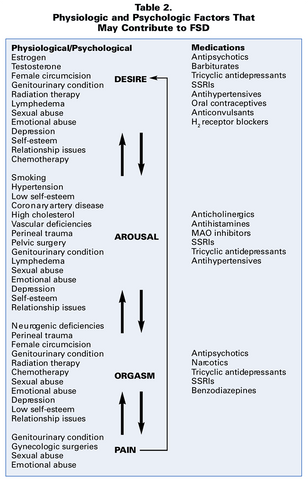
To make this a bit less overwhelming, let's reclassify this into some commonly cited ones.
Note, this is a non-exhaustive list and is mainly to help create a starting point for what can potentially be addressed. Also to clarify, this isn't exclusive to partnered sex—obviously adding another person to the mix adds extra variables, including how receptive, communicative, and attentive the partner is.
Physiological
- General health. Better health generally improves the body's functions—in this case, arousal and orgasm. There are instances showing diabetes [12], cardiovascular disease [13], and similar leading to worse sexual function and fewer (or worse) orgasms.
- Pelvic floor issues. Weakness in the pelvic floor, nerve damage, or even conditions like POTS, can compromise blood flow to the pelvis and result in poorer or entirely absent orgasms. [9]
- Sexual pain. Potentially related to pelvic floor issues, but can have a myriad of causes that are best diagnosed by a medical practitioner. This is unfortunately not uncommon after birth—as described by this surprisingly good Cosmo investigative article).
- Hormonal. Menopause, hypothyroidism, and simply decreased estrogen, progesterone, and testosterone with age can all cause decreased sexual responsiveness and hence lack of orgasm. [5]
- Medication. Needless to say, certain types of medications can cause interactions that decrease sexual function—too many to all name (see drug side effects). SSRIs—used in antidepressants—are a particularly well-documented class of drugs that cause arousal issues. [6]
Psychological
- Sexual abuse/trauma. Both adult and child sexual abuse have been strongly correlated with arousal and orgasm issues. [4] As previously said, there aren't great percentage breakdowns of causes, but this is one of the most common and can lead to issues stemming from discomfort, fear, or body image issues (as mentioned below).
- Depression/stress.This one straddles physiological and psychological, but depression and stress can affect both arousal and orgasm in complicated ways. [8]
- Body image. Lacking confidence about one's body or genitals can make it difficult to become aroused or reach orgasm. [1]
- Lack of experience. This can be caused by the previous, but lack of familiarity with one's genitals and sexual function is (pretty logically) correlated with more difficulty reaching orgasm. [8]
That's a lot. Now what?
Ah, that's the hard part. It depends on what the underlying cause (or mixes of causes) might be.
Talk to your doctor(s)
Many medical practitioners are reluctant to proactively discuss sexual difficulties because they lack familiarity in the topic. Of course, patients usually don't raise it because they often fear they'll be ignored or dismissed (71% of US adults expected this outcome from talking to their doctor in one survey).
That's pretty unfortunate since almost half of the women in this same survey who wanted help from medical practitioners didn't seek help from them. [3]
Breaking the Taboo
Based on this (and other studies), a lot of the logjam is everyone not talking about these difficulties. Unfortunately, medical professionals are not immune to our societal taboos in this area.
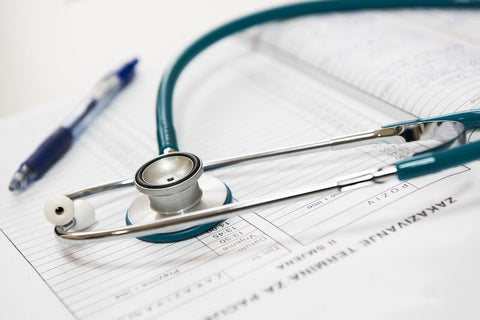
Although it may be uncomfortable, proactively—as a patient—bringing up the topic and even listing out your potential risk factors can open up the conversation and get you the help that you need.
Don't be satisfied until you get the answers you need
If your healthcare professional doesn't listen or address it—find another one that will. We've definitely heard stories of unreceptive general practitioners, OBGYNs, etc. But we've also heard of people finding specific doctors and therapists that helped a great deal.
This is an important part of your health, and for certain of these causes (especially physiological), they have potential treatments that can help and you can't do alone.
(Dubious magic pills aside, one concrete example: if you are on antidepressants and it's affecting your sexual arousal, your doctor may be able to help you find one that is still effective but has less detrimental side effects).
What else can I do?
Medical practitioners often have limited time. Nearly half in that previously cited survey mentioned lack of time as one of the reasons for not asking about sexual health issues—even if they know it might be a problem. [3]
Actually fun homework
You can help things along, or improve your own chances of orgasm by self-exploring and figuring out what some of your individual causes are... through masturbation! You may even start to figure out how to orgasm yourself.
After all, the best action you can do to reach orgasm—supported by literature—is actually to masturbate and self-explore. [3, 7]
Vibrators and more
In one (almost unbelievable) study, 93% of participants who chronically were unable to orgasm were able to after group therapy and clitoral vibrator stimulation (the Betty Dodson method). We'd caution against entirely believing that—it's a little too extreme to be realistic—but plenty of other studies did find less miraculous, but nonetheless impressive results. [8]
Why masturbation and self-exploration?

Regular readers will know that "self-exploration" is perhaps our most common refrain at Lioness. It's not surprising, given we went so far as to make a product focused on exactly that.
But, as we've mentioned in the past, the effectiveness of self-exploration was the REASON for creating the product—not the other way around. So why does self-exploration work (almost) unbelievably well?
Knowledge is power—and in this case, pleasure
Even if you don't literally "lack experience" as an individual coming out of adolescence, one's body can change a lot as one ages. This causes things that used to work to either not work or actually be detrimental.
This applies even to (certain) cases of sexual pain. With patient exploration and figuring out what works for your body, you can find ways to make things work pleasurably.
Like most things, "practice makes perfect." "What's never measured is never improved." ... and all sorts of truisms. The frank fact of the matter is we all tend to not know everything that we can about our own bodies—what we like, don't like, and could do better.
We're all different, and that's ok
The amount that humans sexually vary only exacerbates the necessity to pay attention to our own bodies. In this case, we're all "not normal"—which, in a way, means we're all normal.
At the end of the day, no matter what other help we have comfort with one's own body, knowing our way around and knowing how our own bodies work, will do a lot to improve our sexual outcomes.
Ideally, it's a fun journey, not just a fun destination—whenever we individually get wherever it is we're trying to go.
===
Want to get started self-exploring? We make a vibrator that specifically helps with that. Find out more about The Lioness here!
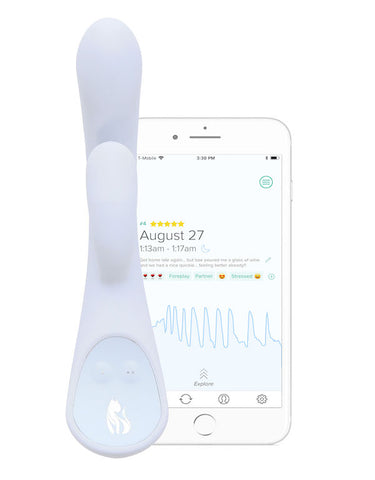 Lioness is the first and only vibrator that helps you improve your orgasms.
Lioness is the first and only vibrator that helps you improve your orgasms.
The world’s most advanced rabbit-style vibrator. Precision sensors let you literally see your arousal and orgasm. Experiment, understand yourself, and have better orgasms—after all, as the saying goes, “never measured, never improved.”
Click hereto learn more about the Lioness.
===
References
[1] Ackard, D. M., Cooke, A. K., & Peterson, C. B. (2000). Effect of body image and self‐image on women's sexual behaviors. International Journal of Eating Disorders, 28(4), 422–429. http://doi.org/10.1002/1098-108X(200012)28:4<422::AID-EAT10>3.0.CO;2-1
[2] Anastasiadis, A. G., Salomon, L., Ghafar, M. A., Burchardt, M., & Shabsigh, R. (2002). Female sexual dysfunction: State of the art. Current Urology Reports, 3(6), 484–491. http://doi.org/10.1007/s11934-002-0102-8
[3] Bachmann, G. (2006). Female Sexuality and Sexual Dysfunction: Are We Stuck on the Learning Curve? The Journal of Sexual Medicine, 3(4), 639–645. http://doi.org/10.1111/j.1743-6109.2006.00265.x
[4] Bartoi, M. G., & Kinder, B. N. (1998). Effects of child and adult sexual abuse on adult sexuality. Journal of Sex & Marital Therapy, 24(2), 75–90. http://doi.org/10.1080/00926239808404921
[5] Berman, J. R., Berman, L., & Goldstein, I. (1999). Female sexual dysfunction: incidence, pathophysiology, evaluation, and treatment options. Urology, 54(3), 385–391. http://doi.org/10.1016/s0090-4295(99)00230-7
[6] Clayton, A. H., Alkis, A. R., Parikh, N. B., & Votta, J. G. (2016). Sexual Dysfunction Due to Psychotropic Medications. Psychiatric Clinics of North America, 39(3), 427–463. http://doi.org/10.1016/j.psc.2016.04.006
[7] de Lucena, B. B., & Abdo, C. H. N. (2014). Personal factors that contribute to or impair women’s ability to achieve orgasm. International Journal of Impotence Research, 26(5), 177–181. http://doi.org/10.1038/ijir.2014.8
[8] IsHak, W. W., Bokarius, A., Jeffrey, J. K., Davis, M. C., & Bakhta, Y. (2010). Disorders of Orgasm in Women: A Literature Review of Etiology and Current Treatments. The Journal of Sexual Medicine, 7(10), 3254–3268. http://doi.org/10.1111/j.1743-6109.2010.01928.x
[9] Kingsberg, S. A., Tkachenko, N., Lucas, J., Burbrink, A., Kreppner, W., & Dickstein, J. B. (2013). Characterization of Orgasmic Difficulties by Women: Focus Group Evaluation. The Journal of Sexual Medicine, 10(9), 2242–2250. http://doi.org/10.1111/jsm.12224
[10] Laumann, E. O., Paik, A., & Rosen, R. C. (1999). Sexual Dysfunction in the United States: Prevalence and Predictors. Jama, 281(6), 537–544. http://doi.org/10.1001/jama.281.6.537
[11] Lordelo, P. (2017). Relationship between Female Genital Self-Image and Sexual Function: Cross-Sectional Study. Obstetrics & Gynecology International Journal, 7(4). http://doi.org/10.15406/ogij.2017.07.00253
[12] Omidvar, S., Niaki, M., Amiri, F., & Kheyrkhah, F. (2013). Sexual dysfunction among women with diabetes mellitus in a diabetic center in Amol. Journal of Natural Science, Biology and Medicine, 4(2), 321. http://doi.org/10.4103/0976-9668.116992
[13] Steinke, E. E. (2010). Sexual Dysfunction in Women With Cardiovascular Disease. The Journal of Cardiovascular Nursing, 25(2), 151–158. http://doi.org/10.1097/jcn.0b013e3181c60e63

